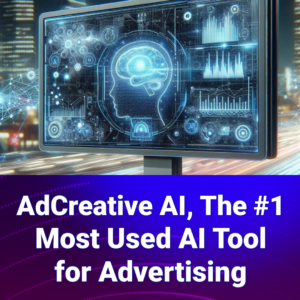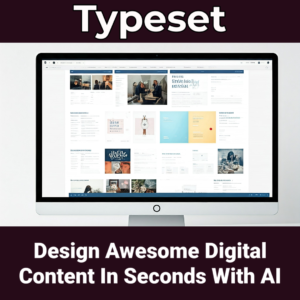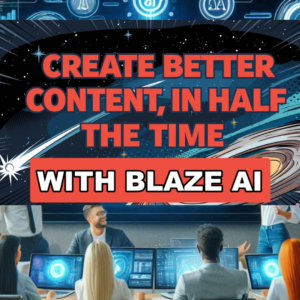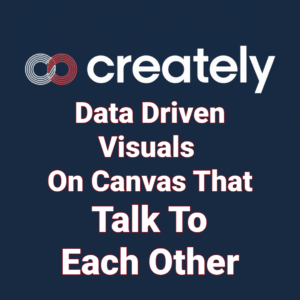In the ever-evolving landscape of digital marketing, the art of storytelling remains a cornerstone of effective communication. However, the integration of Artificial Intelligence (AI) is now revolutionizing how brands create and deliver compelling narratives. This article explores the powerful synergy between AI and storytelling in marketing, offering insights into how this combination is reshaping the industry.
The Power of Storytelling in Marketing
Storytelling has been a fundamental human activity for centuries, used to entertain, inspire, and educate. In marketing, it serves as a potent tool for connecting with prospects and customers alike. The key lies in emotion; a well-crafted story should evoke feelings that drive readers toward a desired action.
Benefits of Storytelling in Marketing:
- Connecting Beyond Facts and Figures: Stories add depth to your marketing copy, creating an emotional connection that transcends mere product features or benefits.
- Captivating Your Audience: Narratives capture attention and improve message retention, creating memorable and engaging experiences.
- Building Trust: Stories provide insight into a brand’s values and personality, fostering trust and establishing stronger connections with the audience.
- Increasing Engagement: By creating meaningful emotional connections, stories can boost engagement and inspire action.
- Differentiating Your Brand: Unique narratives can set your brand apart from competitors, showcasing your distinct identity and values.
Understanding AI in Marketing
Artificial Intelligence refers to computer systems capable of performing tasks that typically require human intelligence. In marketing, AI is already being used for data analysis, customer segmentation, and personalized content delivery. Its role in storytelling represents the next frontier in this technological revolution.
How AI Enhances Storytelling in Marketing
AI is transforming storytelling in marketing through several key applications:
- Data Analysis for Audience Insights: AI can process vast amounts of data to uncover deep insights about audience preferences, behaviors, and emotional triggers. This information allows marketers to craft stories that resonate more powerfully with their target audience.
- Personalization at Scale: With AI, brands can create and deliver personalized story experiences to individual customers, tailoring narratives based on personal preferences, past interactions, and real-time behavior.
- Content Generation and Optimization: AI-powered tools can assist in generating story ideas, writing copy, and optimizing content for maximum engagement. While human creativity remains crucial, AI can enhance and streamline the content creation process.
- Predictive Analytics for Story Performance: AI can analyze past performance data to predict how different story elements might resonate with various audience segments, allowing for more strategic storytelling approaches.
Best Practices for AI-Driven Storytelling
To effectively harness AI for storytelling in marketing, consider these best practices:
- Maintain Brand Voice and Authenticity: While AI can assist in content creation, ensure that your brand’s unique voice and authenticity shine through. AI should enhance, not replace, human creativity.
- Focus on Relevance and Relatability: Ensure your AI-enhanced stories remain relevant to your audience and relatable to their experiences.
- Incorporate Conflict and Resolution: Use AI insights to identify common pain points or challenges your audience faces, and structure your stories around these conflicts and their resolutions.
- Include Clear Calls-to-Action: Every story should lead naturally to a clear and compelling call-to-action, guiding your audience on what to do next.
- Balance AI Assistance with Human Oversight: While AI can provide valuable insights and assistance, human judgment remains crucial in ensuring stories align with brand values and strategic goals.
Measuring the Impact of AI-Enhanced Storytelling
To gauge the effectiveness of your AI-powered storytelling efforts, consider tracking these key performance indicators (KPIs):
– Engagement rates (time on page, scroll depth, social shares)
– Conversion rates
– Brand recall and sentiment
– Customer lifetime value
Use AI-powered analytics tools to gather and interpret this data, allowing for continuous improvement of your storytelling strategies.
The Future of AI in Marketing Storytelling
As AI technology continues to advance, we can expect even more sophisticated applications in marketing storytelling. Emerging technologies like virtual and augmented reality, coupled with AI, may create immersive, personalized story experiences. Voice assistants and natural language processing could enable interactive storytelling on new platforms.
However, as these technologies evolve, marketers must remain mindful of ethical considerations, ensuring transparency and responsible use of AI in their storytelling efforts.
Conclusion
The integration of AI into marketing storytelling represents a powerful opportunity for brands to connect with their audiences in more meaningful and effective ways. By leveraging AI’s capabilities in data analysis, personalization, and content optimization, marketers can create compelling narratives that resonate deeply with their target audience.
As we move forward, the brands that successfully blend the art of storytelling with the science of AI will be best positioned to capture attention, build lasting relationships, and drive business success in an increasingly competitive digital landscape.
Are you ready to revolutionize your marketing storytelling with AI? The future of brand narratives is here – it’s time to embrace it.













